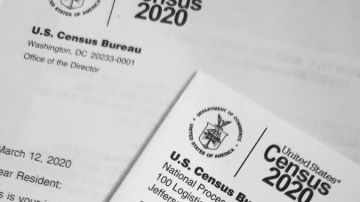Biden Administration Proposes Adding Hispanic/Latino Race Option in Census
Latinxs have always struggled to come to a consensus about a collective name for the community and whether one name is even needed given the wide range of races, cultures, experiences, languages, and countries that it attempts to capture

Photo: Unsplash/Enayet Raheem
Latinxs have always struggled to come to a consensus about a collective name for the community and whether one name is even needed given the wide range of races, cultures, experiences, languages, and countries that it attempts to capture. The debate has also affected how Latinxs identify themselves on official records like voting forms and the U.S. Census, which currently lists Hispanic/Latino as an ethnicity and gives the option to check a race. For many, this has caused decades of confusion, which then affects how various local, state, and government programs are funded. Not to mention how certain groups are made visible and acknowledged on a national level as shown by Brazil’s own recent census changes. This week, a committee organized by the Biden administration has proposed changes to the census, including adding Hispanic/Latino to be an option for race on the census in addition to ethnicity. It would also include more descriptive options including “Colombian”, “Puerto Rican,” and “Cuban.“
“I wish the Biden administration had started work on this much earlier in the administration,” Arturo Vargas of the National Association of Latino Elected and Appointed Officials Educational Fund, told NPR. “The good thing is that they’re not starting from zero because what they’re doing is reigniting a process that was put on hold and based on extensive research and science and consultation with communities and organizations.”
Because the census questions concerning race are decades-old, it’s not surprising that huge shifts may be underway, since recent conversations about race and ethnicity are dramatically changing the way many people self-identify themselves. In response to those shifts, the committee has proposed creating a racial classification on the census for people of Middle Eastern and North African descent known as MENA, allowing people to detail their multiple race and ethnicity identifiers, and removing the terms “Negro,” “minority,” and “majority” from official language.
But it’s the restructuring of Hispanic/Latino as race that has re-sparked decades of debate about what race and ethnicity really mean in the Latinx community. As it stands now, listing Hispanic/Latino as an ethnicity acknowledges intersectional identities for people who may identify as Afro-Latinx, Asian-Latinx, Indigenous-Latinx, white Latinx, and more. This is important in order to reject and push against the “mestizaje myth” that has claimed a white and Indigenous mixed-race identity for everyone, which is both untrue and harmful. Still, there’s undeniable evidence that the current census has led to years of misidentification and confusion about the difference between race and ethnicity, which has a domino effect on everything from government funding to voting to housing.
Research from The Census Bureau found that in 2020, 42 percent of people who identified as Hispanic/Latino as an ethnicity identified as “some other race.” In 2021, a third of Hispanic/Latino census takers identified as two or more races and 20 percent identified as white. Not to mention that “Latino adults were more likely than white or Black adults to say the 2020 decennial census’ two-part race and ethnicity questions did not reflect their identity well,” NBC reported.
It’s obvious that there’s work to be done but it’s unclear whether this recommendation is the answer or if it will only lead to more confusion and erasure, not only of the differences between race and ethnicity, but also of the complex history of Latin America that has made these conversations difficult and dividing. For now, the Biden administration is currently reviewing all the proposed changes, which, if approved, would be implemented in time for the next U.S. census in 2030.

















